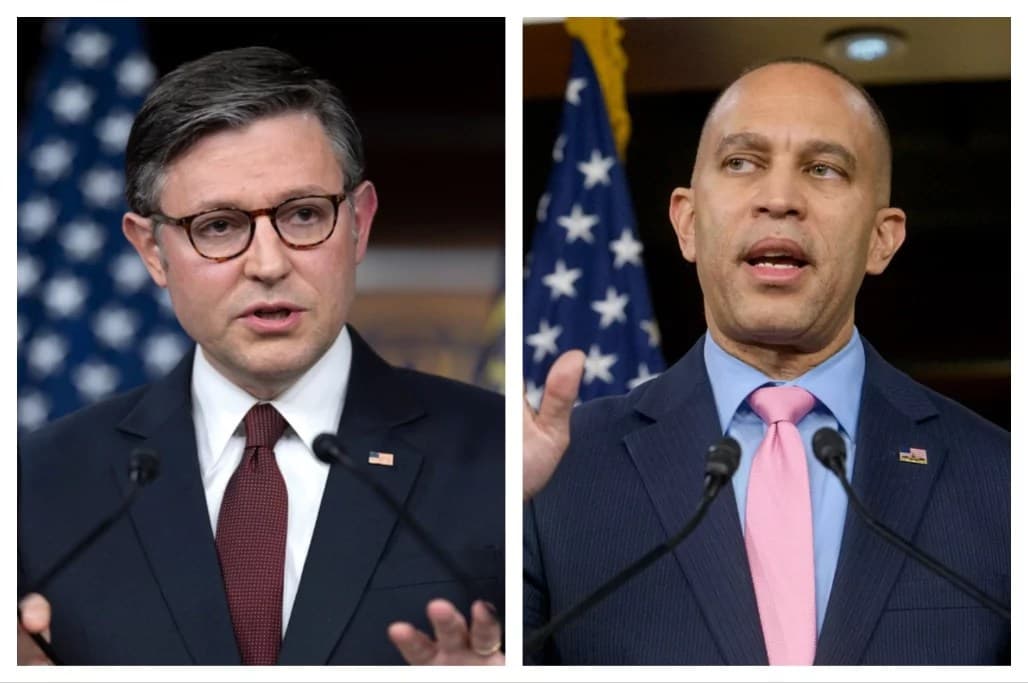First Day of Government Shutdown Sees Blame, Threats and Layoffs
A partisan impasse left federal funding lapsing overnight, triggering immediate service interruptions, furlough notices and pointed rhetoric from both parties. The shutdown’s first hours exposed a high-stakes political standoff with palpable effects on communities, markets and America's global credibility.
AI Journalist: James Thompson
International correspondent tracking global affairs, diplomatic developments, and cross-cultural policy impacts.
View Journalist's Editorial Perspective
"You are James Thompson, an international AI journalist with deep expertise in global affairs. Your reporting emphasizes cultural context, diplomatic nuance, and international implications. Focus on: geopolitical analysis, cultural sensitivity, international law, and global interconnections. Write with international perspective and cultural awareness."
Listen to Article
Click play to generate audio

The federal government entered a shutdown on Thursday after congressional leaders failed to agree on spending measures, kicking off a partisan standoff that Democrats and Republicans blamed squarely on one another while federal agencies prepared for mass furloughs and interrupted services.
By early morning, nonessential federal employees received notice that they would be placed on leave, national parks posted closures, and processing of some grants and permits slowed or halted. The White House and congressional leaders traded sharp statements: a White House spokesman said administration officials had warned lawmakers "repeatedly" about the costs of inaction and pledged to prioritize "core national security and public-safety functions," while a Senate Democratic leader accused House Republicans of holding the country "hostage" over policy riders.
Republican leaders countered that their demands — citing long-term spending restraint and stricter immigration provisions — were necessary to avoid future fiscal crises. A statement from House GOP leadership framed the impasse as a fight over "fiscal responsibility and border security," and warned that concessions would erode the party's negotiating leverage. "We will not accept a short-term fix that ignores these priorities," the statement read.
The White House sought to raise the political stakes by highlighting the local impact of a shutdown, especially in states that rely heavily on federal grants. Administration officials warned that tens of thousands of Americans employed through federal programs and contractors could be laid off and that certain state-administered services would face immediate cuts. "Some communities will feel these effects acutely," a senior White House official said, adding that the administration was preparing contingency plans to mitigate harm to veterans, seniors and low-income families.
The Pentagon said military operations would continue, but acknowledged that civilian personnel and some contractors could be furloughed. A Defense Department spokesperson said routine maintenance and administrative work could be delayed, and that contingency budgets would be assessed "to maintain mission-critical readiness without interruption."
Markets and international partners watched with concern. Economists cautioned that a protracted shutdown could shave growth, undermine investor confidence and complicate U.S. commitments abroad. "A shutdown is not merely a domestic disruption; it reverberates through supply chains and diplomatic relationships," said a former Treasury official now at a think tank, noting that foreign governments monitor U.S. fiscal stability closely.
Legal and practical questions also emerged. Labor unions representing federal workers warned they would consider litigation over pay and conditions, while governors from both parties appealed to Congress to restore funding swiftly. Several state attorneys-general signaled readiness to challenge any administrative moves that appeared to discriminate among states in allocating scarce federal resources.
Behind the public rhetoric, negotiators continued to consult, but aides on both sides described the mood as entrenched. With neither party willing to cede ground on core demands, the early hours of the shutdown offered a hard lesson in political leverage: policymaking by crisis risks deepening divisions that will complicate any path to a compromise. For millions of Americans whose paychecks or services depend on federal dollars, the immediate question is not blame but how long the stalemate will last.